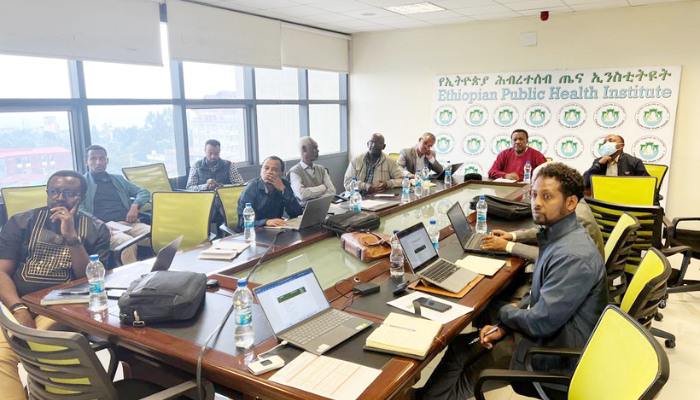The Africa Centres for Disease Control and Prevention (Africa CDC) has allocated $1.6 million to nine newly designated National Public Health Institutes (NPHIs) across Africa. These institutes will serve as regional Centres of Excellence, supporting public health initiatives across the continent.
A letter from Africa CDC Director General, Dr Jean Kaseya, dated 31 January 2025, informed the selected organisations of their role. “As a Center of Excellence, your NPHI will serve as a regional hub for peer-to-peer technical assistance, training, and mentorship. It will also support Member States in developing or strengthening core NPHI functions, including disease surveillance, outbreak response, public health research, and workforce development.”
The selected NPHIs are in Ethiopia, Burkina Faso, Burundi, the Democratic Republic of Congo, Liberia, Mozambique, Nigeria, South Africa, and Rwanda. The selection process followed a rigorous assessment of NPHIs across Africa and aligns with Africa CDC’s mission to enhance disease control policies and strengthen public health capacities in Member States.
Africa CDC has earmarked the funds for equipment and training. “We are planning different types of support, but this year we will be equipping them to start National Data Management Centres. We will be procuring servers and computer software, including training,” said Haftom Taame, Principal Technical Officer, Public Health Institutes and Research at Africa CDC.
Read also: Uganda’s $1.14 billion coffee industry, opposition calls for funding halt
Priority for ISO 9001 accreditation and capacity building
NPHIs from Mozambique, Liberia, and Burundi will be prioritised in 2025 for ISO 9001 accreditation. This process aims to improve operational efficiency through streamlined processes.
From the second quarter of this year, Africa CDC will collaborate with the European CDC to pair these Centres of Excellence with European NPHIs. The objective is to facilitate knowledge sharing and enhance their capabilities through mentorship.
Taame highlighted the focus on leadership and management training as part of the initiative. “As part of strengthening the NPHI’s, we will also focus on leadership and management – a continuation of what the Centre of Public Health started last year, supporting seven countries. This year, four rounds of training will be conducted to build leadership and management capacity of NPHIs across the continent.”
Africa CDC’s strategy aims to build core capacities for essential public health functions, including research, surveillance and information systems, emergency response coordination, workforce development, and corporate governance and leadership. These Centres will support Member States in their respective regions to establish and strengthen NPHIs.
“Once we establish these Centres, they will support regional Member States in their respective regions to establish NPHI’s and build their capacities,” Taame said. He added that Africa CDC’s headquarters in Addis Ababa cannot directly serve all Member States, making decentralisation necessary.
Read also: IFC invests $50m in Lagos Free zone to boost industrial growth
Challenges in managing public health and recommendations
Taame noted the challenges facing public health security in Africa, particularly the fragmented approach to outbreaks and infections. He explained that in many countries, essential public health functions are spread across multiple agencies without a unified structure. “For example, surveillance is managed in one place, response is handled elsewhere, and the lab is in another centre. These entities are not linked to the department that responds to the outbreak or the lab that detects the infection to coordinate the response.”
Dr Dougbeh Chris Nyan, Director General of the National Public Health Institute of Liberia (NPHIL), welcomed the recognition of his institution as a Centre of Excellence. “This recognition is a testament to the dedication of our public health professionals. As a Center of Excellence, we will continue leading efforts in disease surveillance, emergency response, and capacity building for the African continent.”
Liberia’s selection as a Centre of Excellence marks a significant step for the country, which has faced major public health challenges, including the 2014–2016 Ebola outbreak and the COVID-19 pandemic.
In addition to supporting regional Centres of Excellence, an Africa CDC performance review held in Arusha, Tanzania, in January 2025, identified several challenges. The review highlighted delays in Member States establishing NPHIs as autonomous institutions, a lack of leadership commitment, insufficient resources, and inadequate staffing.










